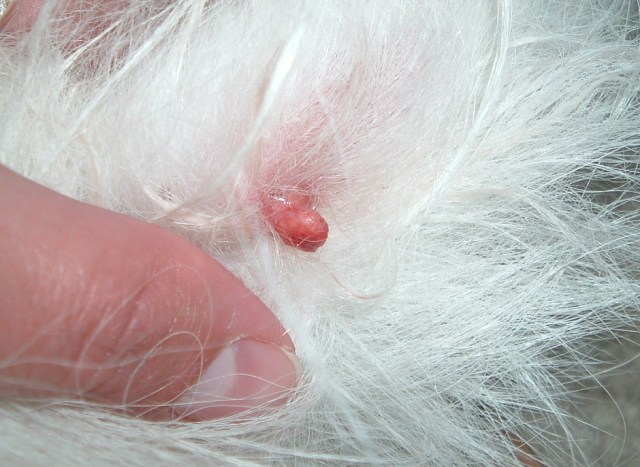QuestionDear Dr. Fry,
My name is Jessica Torrance. I am a freelance journalist, and I am currently researching an article regarding the steps that indoor/outdoor cat owners can take when their pets hunt and return to the home with their prey. I would be very interested to receive your input on this subject. In particular, your response to the following questions would be invaluable:
- What preventative measures can indoor/outdoor cat owners take to discourage
hunting behavior, if any? (Bells, cutting the claws, punishment, etc.)
- Are there any health threats that owners should be aware of when a cat hunts
on a regular basis (For example, Rabies, other transmittable diseases, parasites, wounds, digestive issues from eating wild animals)?
- In the event that a cat returns home with a dead bird or rodent, what steps
can the owner take to remove/dispose of the prey and discourage the cat
from repeating the behavior?
- In the event that a cat returns home with a live animal, what steps can the
owner take?
Thank you for your time and consideration, and for any information you would like to contribute for the article. If you have any questions, please don't hesitate to contact me.
Sincerely,
Jessica Torrance
AnswerIt is hard to discourge a cat's natural instincts; however, bells on collars are about the best thing you can do. I highly advise keeping cats indoors which will prevent all predatory behavior and health threats. Other things to consider....do not have bird/squirrel feeders in the yard so as not to attract prey....consider putting cat in an enclosed kennel or only take the cat outside on a leash for supervised visits. Certain plants like Gophur Purge can be planted outside to discourage moles and the like.
Rabies is a serious concern, but with proper vaccination (every 1-3 years) the threat is minimized.
External parasites such as fleas and ticks are very common in outside cats, however, topical products such as Frontline will prevent these parasites.
Tapeworms are the biggest intestinal parasite that cats pick up from hunting. Checking rectal area frequently for rice-like segments or what looks like dried tomato seeds. A single deworming pill or injection will kill the parasites.
There are many other parasites that cats can pick up, therefore, regular fecal examinations are important as several intestinal parasites can be transmitted to people. Toxoplasomosis is of real concern for the pregnant mother.
Many cats will not eat their prey, but deliver it to their owner as a present. You should not punish your cat as s/he is giving you a gift and they are likely NOT to understand. Simply dispose of the prey and go about your business. If your cat returns with a live animal that is not injured, take it to a safe area. If the animal is injured, humanely destroying the prey is best.
Another concern for cats eating prey is the potential for the prey (mice and rats) to be poisoned. Most commercial poisons work by causing the mouse/rat to slowly bleed internally. And if the cat ingests this rodent the poison can also cause internal bleeding in the cat. Therefore, the owner should pay particular attention to the cat's attitude and energy level as well as gum color and watch for any abdominal swelling or difficulty breathing.
Because cats may fight over prey and territory, the owners must be made aware of Feline Leukemia and Feline AIDs which can be transmitted from cat to cat from intimate contact and fighting. Both of these viruses are life-threatening; however, there are vaccinations to prevent these disaeses.
Hope this helps!
Dr. Fry

 American Eskimo skin growth
Question
Buddy
We have a 9-11 Year old American Eskimo.
American Eskimo skin growth
Question
Buddy
We have a 9-11 Year old American Eskimo.
 Vomiting and swollen neck glands
Question
Vomit
Hi
We have a 2 year old male, neutered M
Vomiting and swollen neck glands
Question
Vomit
Hi
We have a 2 year old male, neutered M
 skin rash
Question
Chihuahua Rash chihuahua rash
My
skin rash
Question
Chihuahua Rash chihuahua rash
My
 sick little puggie
Question
lola
My year old chug (chihuahua pug cr
sick little puggie
Question
lola
My year old chug (chihuahua pug cr
 downed pasterns
Question
bent pasterns
hi...i have a 7 month old german
downed pasterns
Question
bent pasterns
hi...i have a 7 month old german